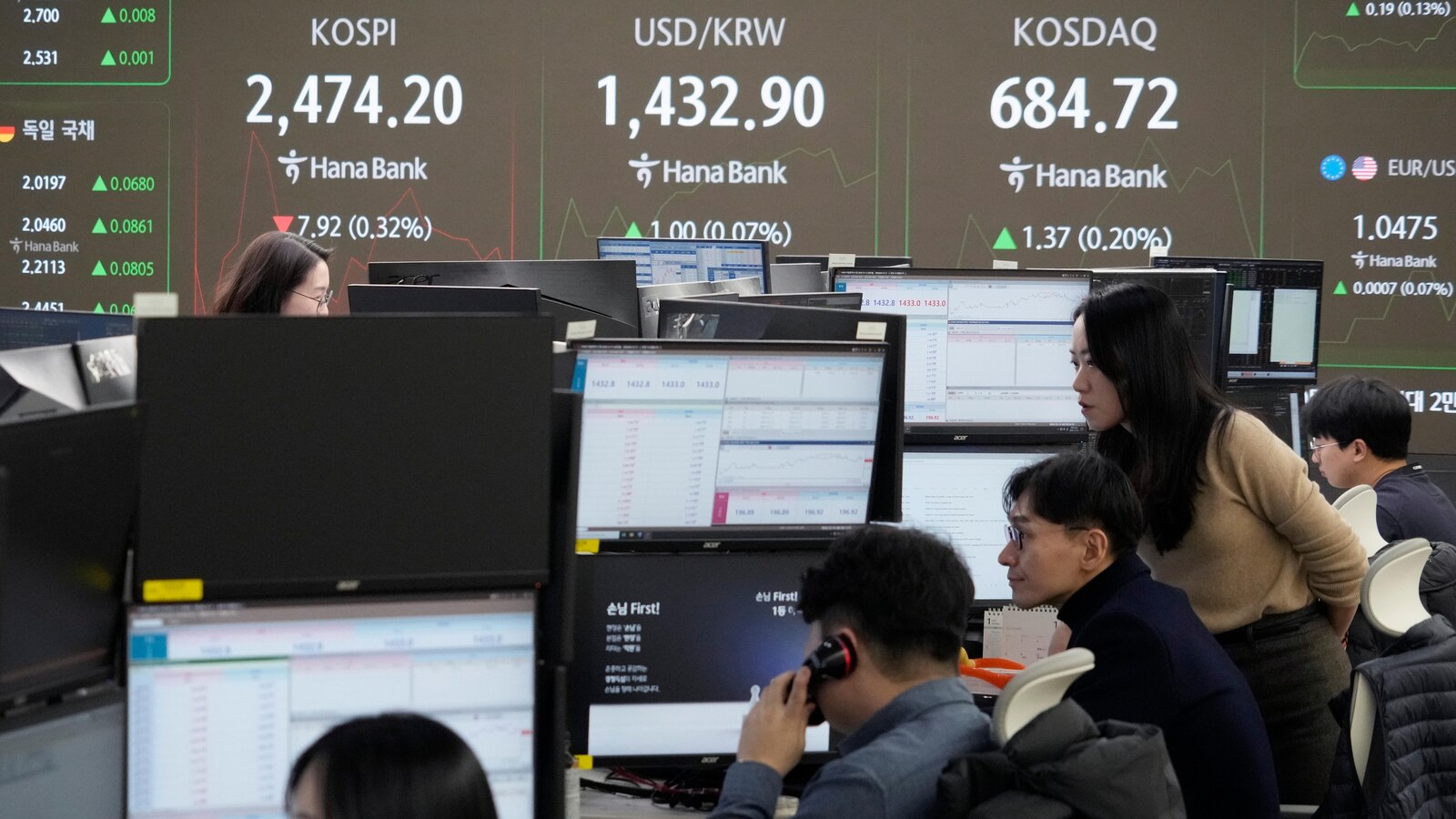HONG KONG — Asian shares fell on Friday, tracking Wall Street’s decline in response to potentially discouraging data on the economy.
U.S. futures and oil prices were little changed.
Chinese leaders wrapped up a two-day economic policy meeting in Beijing on Thursday. Investors were hoping for major moves to support the economy, but the readouts from the closed-door meetings of top leaders lacked details. State media reported that leaders agreed to increase government borrowing to finance more spending and to ease credit to encourage more investment and spending.
“Chinese authorities have been stuck in a more reactionary policy mode, as the uncertainty of U.S. tariff plans makes it difficult for policymakers to make any commitments just yet,” Yeap Jun Rong of IG said in a commentary.
The Hang Seng in Hong Kong sank 2% to 19,994.25, and the Hang Seng Properties index lost 2.7%. The Shanghai Composite index skidded 2% to 3,391.88.
Japan’s benchmark Nikkei 225 slipped 1% to 39,47.44. A survey by the Bank of Japan showed that business sentiment among large Japanese manufacturers was stronger than expected in the fourth quarter of this year, though overall the results were lackluster.
Elsewhere in Asia, Australia’s S&P/ASX 200 shed 0.4% to 8,296.00. South Korea’s Kospi added 0.5% to 2,494.46.
On Thursday, the S&P 500 slipped 0.5% to 6,051.25, marking its fourth loss in the last six days. The index had been rallying toward one of its best years of the millennium.
The Dow Jones Industrial Average lost 0.5% to 43,914.12, and the Nasdaq composite sank 0.7% to 19,902.84.
A report said more U.S. workers applied for unemployment benefits last week than expected. A separate update, meanwhile, showed that inflation at the wholesale level, before it reaches U.S. consumers, was hotter last month than economists expected.
Neither report rings warning bells, but they did dilute hopes that the Federal Reserve will keep cutting interest rates. That expectation has driven the S&P 500 to 57 all-time highs so far this year, driven by the fact that inflation has been slowing while the economy is solid enough to stay out of a recession.
Traders are widely expecting the Fed will ease its main interest rate at its meeting next week. That would be a third straight cut by the Fed after it began lowering rates in September from a two-decade high. It’s hoping to support a slowing job market after getting inflation nearly all the way down to its 2% target.
Lower rates would give a boost to the economy and to prices for investments, but they could also provide more fuel for inflation.
A cut next week would have the Fed following other central banks. The European Central Bank cut rates by a quarter of a percentage point on Thursday, as many investors expected, and the Swiss National Bank cut its policy rate by a steeper half of a percentage point.
Following its decision, Switzerland’s central bank pointed to uncertainty about how U.S. President-elect Donald Trump’s victory will affect economic policies, as well as about where politics in Europe is heading.
Trump has talked up tariffs and other policies that could upend global trade. He rang the bell marking the start of trading at the New York Stock Exchange on Thursday to chants of “USA.”
In other dealings early Friday, U.S. benchmark crude oil picked up 12 cents to $70.14 per barrel. Brent crude oil, the international standardgained 1 cent to $73.42 per barrel.
The U.S. dollar rose to 152.88 Japanese yen from 152.55 yen. The euro fell to $1.0462 from $1.0472.
